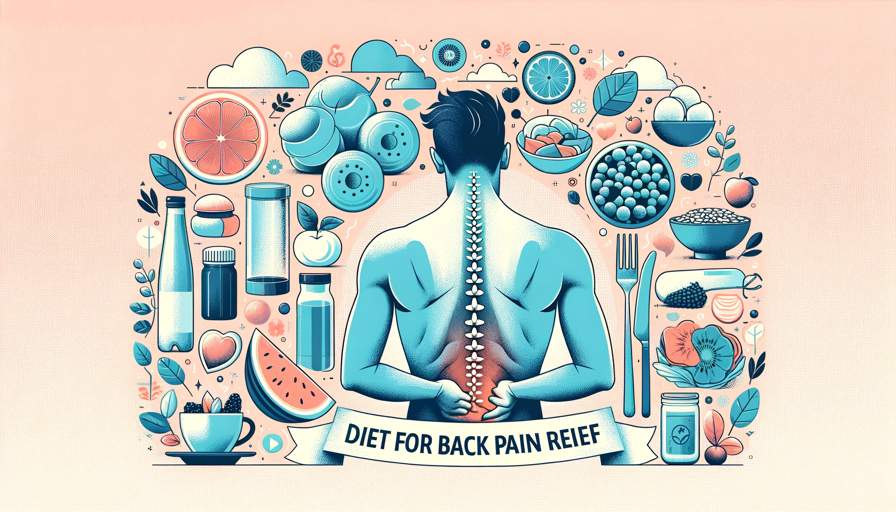Back pain, a common issue affecting many individuals, can significantly disrupt daily life. While treatments like physical therapy and medication are essential, the role of diet in managing back pain is often underestimated. This blog focuses on the best dietary practices for back pain relief, emphasizing an anti-inflammatory diet.
The Impact of Diet on Back Pain Relief
Inflammation can play a significant role in back pain. An effective nutrition for back pain relief involves consuming foods that reduce inflammation and avoiding those that exacerbate it. Let’s delve into what constitutes an ideal back ache relief diet.
Anti-Inflammatory Diet for Back Pain Relief
- Omega-3 Fatty Acids: Essential for a diet targeting back pain relief, omega-3-rich foods like salmon, mackerel, flaxseeds, and walnuts have excellent anti-inflammatory properties.
- Fruits and Vegetables: Incorporating a variety of colorful fruits and vegetables is key in a back pain relief diet. Options like berries, oranges, spinach, and carrots are high in antioxidants and vitamins, aiding in inflammation reduction.
- Whole Grains: Opt for whole grains like brown rice, quinoa, and whole wheat in your diet for back pain relief. They are better at reducing inflammation compared to refined grains.
- Lean Proteins: Including lean meats and plant-based proteins supports muscle strength, crucial for alleviating back pain.
- Nuts and Seeds: Almonds, chia seeds, and flaxseeds are not only rich in omega-3s but also contain magnesium, which is beneficial for bone health.
- Herbs and Spices: Incorporate anti-inflammatory herbs and spices like turmeric and ginger into your back pain relief foods for added benefits.
Back Pain Relief Foods to Avoid
For effective back pain management, avoid:
- Processed Foods: These can increase inflammation and are not recommended in a diet for back pain.
- Refined Carbohydrates: White bread and pastries can exacerbate inflammation and should be limited.
- Red Meat and Sugary Drinks: Both can contribute to inflammation and are not advisable in a back pain relief diet.
Hydration: Essential for Back Pain Relief
Proper hydration is vital for spinal health. The spinal discs, critical for spine flexibility, need water to function correctly. Lack of hydration can lead to stiffer discs, increasing pain risk. It’s not just about drinking water; include hydrating foods like cucumbers, lettuce, and watermelon in your diet. These foods help maintain hydration, which is essential for alleviating back ache.
Weight Management: Crucial in Alleviating Back Pain
Maintaining a healthy weight is important for reducing back pain. Excess weight, especially around the midsection, adds stress to the back. A balanced diet, including fiber-rich foods, lean proteins, and healthy fats, coupled with regular exercise, is key. This approach not only helps in weight management but also supports overall back health, making it an important part of a herniated disc diet.
Herniated Disc Diet Considerations
For those with a herniated disc, a diet rich in anti-inflammatory foods can be particularly beneficial. Focus on including omega-3 fatty acids, whole grains, and plenty of fruits and vegetables.
Supplements for Back Pain Relief
In some cases, supplements like Vitamin D, magnesium, and omega-3 can complement a diet for back ache relief. Consult with a healthcare provider before starting any supplements.
Conclusion
Adopting a diet for back pain relief, which includes anti-inflammatory foods, proper hydration, and weight management, can significantly improve back health. Always consult with a healthcare provider or nutritionist to ensure your diet is tailored to your specific needs.
Disclaimer
This blog provides general information and discussions about health and related subjects. It’s not intended as medical advice and should not replace professional medical expertise or treatment. If you have a medical concern, always consult with your healthcare provider.
